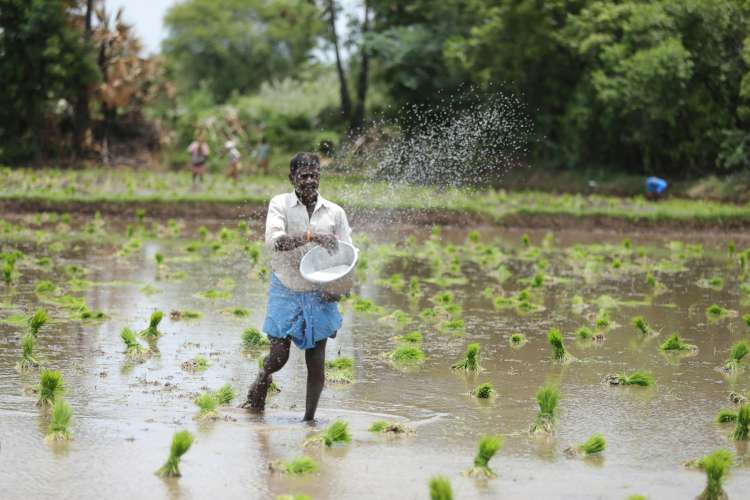
The government is expected to expand its flagship minimum support price scheme to include select pulses and oilseeds. An announcement regarding this will be made in the upcoming Union Budget for 2024-25. Under the Pradhan Mantri Annadata Aay Sanrakshan Abhiyan (PM-AASHA), some oilseeds and pulses will be assured an MSP through either 100% direct purchase or price deficiency payments. The programme’s guidelines, established a few years ago, restrict the quantity of pulses and oilseeds that farmers can sell at the MSP.
Previously, Union Agriculture Minister Shivraj Singh Chouhan repeatedly emphasised the government’s commitment to the 100% procurement of arhar, urad, and masoor at MSP from all states. The government’s procurement of pulses and oilseeds under the scheme has gradually increased. Initially, it was mandated to buy only 25% of production. This limit was later raised to 40%. Most recently, for the 2023-24 season, the cap was entirely removed for arhar, urad, and masoor. It is expected that unlimited procurement will be extended, assuring farmers that their produce is not vulnerable to falling market prices. Usually, in the case of oilseeds and pulses, the maximum price drop below MSP is around 10-15%.
READ | ONGC leads India’s renewable push with Rs 2 trillion roadmap
The need for MSP
As the most populous nation, India must strengthen its food security, a sensitive matter for the government and policymakers. While rice and wheat remain staples, pulses and oilseeds are vital sources of protein and healthy fats. However, inadequate price support for these crops disincentivises farmers from growing them. The upcoming Union Budget presents an opportunity to address this issue through reforms to the Pradhan Mantri Annadata Aay SanraksHan Abhiyan (PM-AASHA) scheme.
Currently, farmers are vulnerable to fluctuating market prices, which discourages production and creates a cycle of dependence on imports. India imports a significant 60% of its edible oil needs, leaving the nation prone to price volatility and potential supply chain disruptions. Strategic interventions are needed to promote oilseed cultivation in irrigated areas, improve yields, and ensure remunerative prices for oilseed growers.
The government is also considering extending the price deficiency payment scheme to oilseeds. This would compensate farmers for the difference between MSP and market price, ensuring a minimum return on their investment.
The Commission for Agricultural Costs and Prices (CACP), responsible for determining the MSP of over 20 crops annually, has reported issues within PM-AASHA’s implementation. While the pulse procurement system shows promise, the oilseed components require better mechanisms. Greater private sector participation in procurement operations can enhance efficiency and reach. As India’s reliance on imports for edible oils has grown over the past few decades, private sector participation in the procurement operations under the Price Deficiency Payment Scheme (PDPS) and the Pilot of Private Procurement and Stockist Scheme (PPSS) under PM-AASHA may help.
Launched in 2018, PM-AASHA is an umbrella for several programs: the Price Support Scheme (PSS) for pulses, oilseeds, and copra; PDPS for oilseeds; and PPSS for oilseeds. While the PSS has shown success, increasing pulse buffer stocks significantly, other components face hurdles. Notably, the PDPS and PPSS have not gained traction, and even the PSS encounters implementation challenges. The commission has suggested extending the National Mission on Edible Oils to major oilseeds, such as mustard, soybean, sunflower, and groundnut.
Indian farmers have been highly disenchanted with the government on the core issue of MSP, which also resulted in a setback for the Modi government in the recent Lok Sabha elections. One of the key demands of the ‘Dilli Chalo’ march was a legal guarantee of MSP.
MSP can be made legally binding in two ways: either by forcing private buyers to pay the MSP, making it the floor price for mandi auctions, or by having the government buy the entire crop that farmers offer at the MSP, which would translate into an added fiscal cost for the government. The government is largely pushing for capital expenditure at the cost of social welfare, making it challenging to persuade it to legalise MSP for all.
The Modi government previously projected that a guaranteed MSP would increase the cost by ₹17 lakh crore. However, analysts believe that the actual cost of running an MSP backed by government payouts as part of a targeted scheme or a price stabilisation fund may not be more than ₹50,000 crore. The government cannot ensure equitable growth without prioritising fiscal equality for farmers and rural India.
